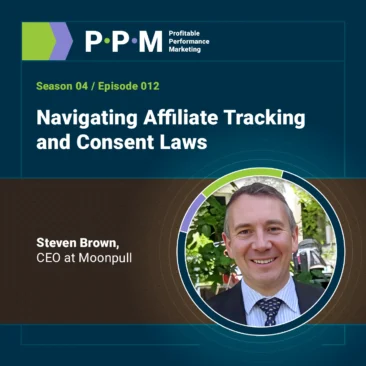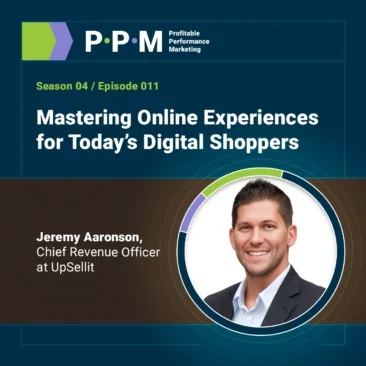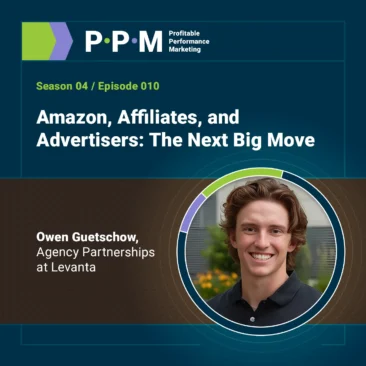Season 02 / Episode 015
Affiliates Got the Power
Note: if you get only a 30 second preview, please log into your Spotify account, or find us on one of several other podcast services.
Summary
If you are a fan of He-Man, you definitely want to listen to this episode. Our CEO, Jamie Birch, talks about how the power dynamic in affiliate relationships has shifted dramatically in the last few years and the things you should be doing to take advantage of that swing.
Listen
Share
Notify
Transcript
[00:00:48] JB: Hello, Profitable Performance Marketing podcast listeners, this is Jamie Birch, your host, and CEO and founder of JEBCommerce, the industry leading, an award winning affiliate marketing agency coming to you today with a topic, a solo podcast to chat with you about affiliates and their power. I’m reminded, if you’re a Gen Xer, you probably spent Saturday mornings with your cartoons. Yes, kids, back in the day, we only got cartoons on Saturday. Saturday morning, we got this small window of cartoons. But anyway, I’m thinking about the He-Man cartoons. I believe when he was ready to go to battle against Skeletor, I believe he raised his sword in the air and said, “I have the power.” I’m reminded of that right now that scene as one of the biggest changes in affiliate marketing over the last few years is that affiliates, they got the power. They have way more and now they’re flexing it.
Jamie, what are you talking about? Well, I’ve been in the space for a long time. For those of you who have been doing affiliate marketing for 15, 20 years, you may remember when we all started, the advertiser really had the power, the merchant. They had the power. The retailer, however you want to call them. I’m sorry. If you hear my dog in the background, she is a Great Dane and is making a lot of noise today behind me. I don’t think if you’re watching – oh, there she is. If you’re watching a video, you can see her behind me.
But anyway, when we started, advertisers really had the power. That came from, they paid for everything. They paid the networks, they paid the affiliates and they had a whole lot of power in dictating the relationship and driving it. That went on for well over a decade, probably the first 15 or 16 years of the affiliate channel, and its maturation, and growth and evolution. But that’s not the case anymore. Now and over the last years, the really good and smart affiliates have been doing this for a while. They focused all their attention on building their own brand and their product. They may be a coupon site and their product is coupons and discount. They may be a loyalty site and their product is providing you cashback or a way to save for college or something like that. They’ve done a tremendous job of refining their product, but also branding.
I remember, I was having a conversation with a client, and I was in line at McDonald’s. I know you’re going to food-shame me, but every once in a while, I enjoy a Filet-O-Fish sandwich. But I was in there and on the back of the french fries, and McDonald’s still probably the best french fries, most consistently good french fries. But on the back of that french fry box was an ad for, Upromise an affiliate. As I was talking to a client there, and they were wondering if affiliates really do anything, I was looking at that going, “They do a ton of marketing. They do a ton of branding.”
Back before that really happened, a lot of the customers knew about the brand, because of the brands’ efforts. They had a tie to the brand, and they had an affinity for the brand and loyalty for the brand, for the retailer, for the advertiser. But as affiliates continued to refine their product, continue to deliver that same consistent product and focus on the user. You saw Amazon do this, they focus on the user 100%, one huge market share. I think I just read an article where 34% of all online businesses on Amazon started on the merchant site then went to Amazon. But that focus on the customer and their product started to slowly shift. Consumer’s loyalty and consumer shopping behavior from going directly to the advertiser, the merchant, the retailer, the manufacturer. That’s shifted to the affiliate, because what they were getting on top of a pair of jeans that they like, or shoes or a travel package, they were getting something else that the retailer and the merchant couldn’t provide.
Well, that has since grown to really the affiliates have the power. Now, especially in this turbulent market that we have, in this world. Right now, it is March, we are dealing with the end of a pandemic, coming out of two years of that. We all thought, man, we’re going to get some breathing room now. Now there is a significant war going on between Ukraine and Russia. All this turbulence is going on. All the retailers and advertisers and merchants are trying whatever they can to get access to more of their preferred and ideal customers. While the affiliates have done such a good job of redirecting that shopping behavior, redirecting that affinity on the customer to them instead of the brand.
Well, now, if you want to get that customer, you have to play on that affiliate. I used to always talk about, I call it the pants analogy. If I’m going to my local mall, those haven’t died yet. They’re still around. I go to my local mall, and I’m going to buy a pair of jeans. My solution set is everyone who is there selling men’s jeans. If you’re not there, you’re not going to get my sale. You have absolutely no way to get that purchase from me. I’m only going to shop because I like going to that mall. Now, if you take that to the affiliate, now my affinity as a consumer is to the affiliate. If you’re not on the affiliate site, I don’t even know you exist. I’m not introduced to you. You’re not part of my solution set to make that purchase.
[BREAK]
[00:06:47] JB: Are you enjoying the show so far? I sure hope so. There’s been an awful lot of discussion over the last few years about the value of coupon affiliates. Maybe even you have doubted whether there’s value or not. Well, we at JEBCommerce wanted to find out, and the good news is, the data is out there. We interviewed all the top networks, did our own research and compiled all the data from many reports already done about these affiliates on whether they add value or not. You see, we wanted to know the truth. That resulted in an eBook that is now available to you at jebcommerce.com/value. In this eBook, you’ll find the three categories of coupon affiliates, information from Rakuten’s marketing report on incrementality, data from Google and Comscore, data from LinkConnector on commission stealing, funnel participation, and data on brand perception and so much more.
If you’re struggling with this debate and trying to determine your coupon strategy, you definitely want to download this free eBook. I want you to have this 100% for free. Simply for being a listener of our podcast, you can access this free eBook at jebcommerce.com/value all for free. Thank you for listening. Now, back to our show.
[END OF BREAK]
[00:08:12] JB: That has been a tremendous shift in power in the affiliate channel, in the digital marketing channel. I think it’s a good thing. Affiliates have shown over 20 years, 25 years that they provide value, they can take your product and they can add things to it. Add an experience, add a discount, add a reward, add instructions, add content around that and create something better than what you have on your own as an advertiser. Now, for a lot of people, that has been a super frustrating trend. A lot of advertisers are spending tons of money, millions, hundreds of millions on branding and they’re not seeing the same result. They want people to come to them directly first. That’s been a very frustrating change for a lot of people. But frustrating or not, that is how it has gone and that’s where we’re at.
Affiliates, they got the power. They are driving brand affinity to them. If you want access to those customers, you need to go there. Here’s the thing, if you’ve been worried about coupon sites, they don’t provide value, it’s not the case anymore. We have a wonderful case study on coupons and what they do covering actual real data. If you’re worried about reading that thinking that we’re just going to say they’re great because we’re affiliate marketers ourselves, that’s not the case. We gather data from multiple networks, multiple sources, Commission Junction, and Google or LinkConnector, Pepperjam, now Accent, and Partnerize and Impact. In all of these companies we gather real data.
Now, if you want access to those users, you’ve got to play in their sandbox. What do you do now? Some tips for you. The first thing that I would do is really evaluate your affiliate category distribution. Who are you working with and how are you judging and measuring their success? My recommendation to you is to define your key KPIs. Maybe it’s how many new customers you’re getting through that affiliate, maybe it’s margin, maybe it’s lifetime value or average order value. Measure your affiliates solely on that. Don’t worry about what their name is, measure them on the type of user they are bringing to you. Then develop a plan to engage with all of them that are hitting those KPIs or greater, how can you optimize that? The ones that aren’t hitting those KPIs, see if you can work directly with them to get them to meet and beat your KPI goals.
Those are the things that you really need to do, because the affiliates are doing a damn good job of building affinity to them, and not to the advertisers, getting consumers to come to them first and you want to be there. If you’re about growth, if you want top-of-funnel, if you want more new customers, that’s what you need to recognize is, the advertisers don’t have as much power as they did before. The affiliates got the power.
Anyway, thank you for listening to me today. If you found this episode useful, please share it on your socials; Facebook, LinkedIn, Twitter, all of that. If you know someone who would directly benefit from this conversation, send that right onto them. Five-star review on Apple, or Stitcher, or Spotify or any podcast player that you may be listening to, that goes a long way for exposing more people to conversations like this. I would love to hear your feedback, so email me at gethelp@jebcommerce.com. If you have any feedback on this, if you have a topic you want to hear me chat about, then you can email me there too, gethelp@jebcommerce.com.
If you want to be a guest, we are now planning season three. If you want to be a guest or you know someone who you want on this podcast, don’t hesitate, email us at gethelp@jebcommerce.com. Remember, affiliates got a lot more power than they used to. Your strategies should be changing to reflect that dynamic. I hope you have a great day. Thank you for listening.
[END]
Transcript Toggle





